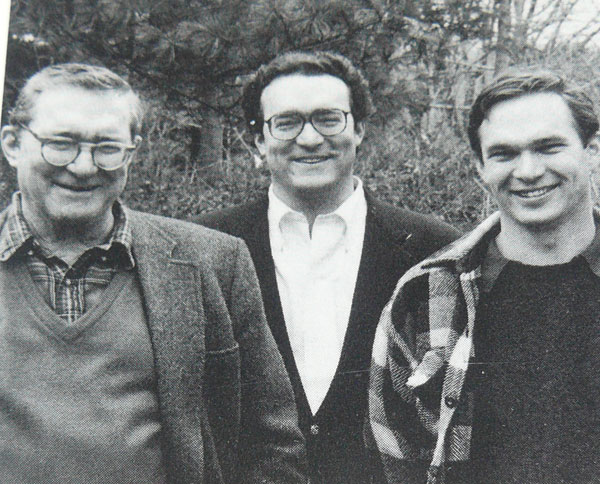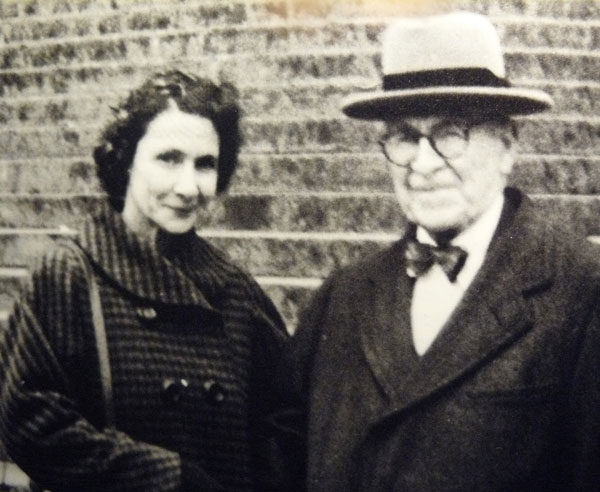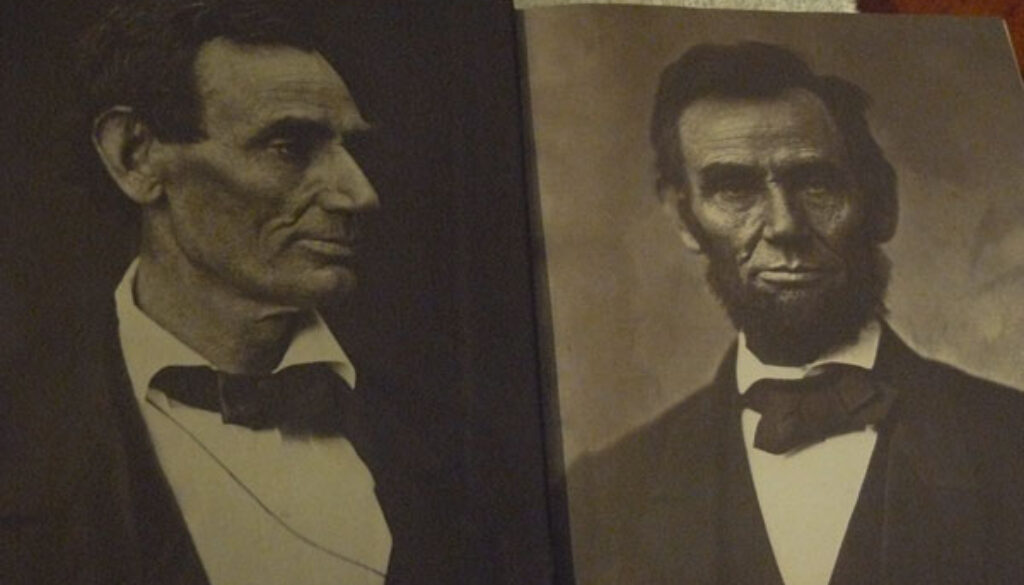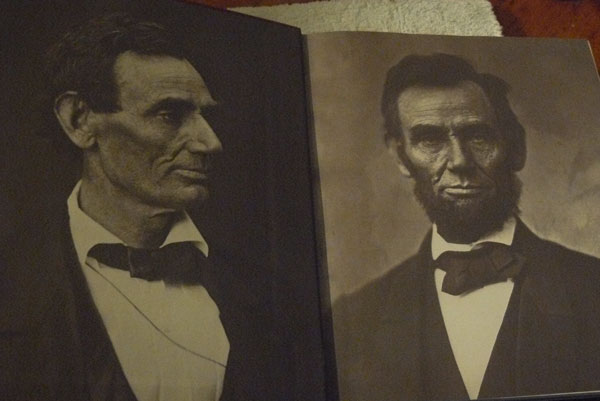Books About Lincoln
I’m devouring two delicious books about Abraham Lincoln that I found at the Whately Antiquarian Book Center: Lincoln by Philip Kunhardt Jr. and his sons Philip and Peter, derived from a documentary made for ABC, and The Lincoln Reader, edited by Paul M. Angle.
Lincoln is such a well-known figure that a lot of people think they know all about him — Honest Abe, born in a log cabin that he built with his own hands — but there’s so much to learn about this complex individual, who played such an important role in preserving the United States of America.
I truly believe he did what no other man could have done. The other day I saw some history professors speculating about what might have happened if Lincoln had lost the election of 1864, as almost everyone thought he would.
As president, George McClellan would have sued for peace and recognized the Confederacy as a nation. The split would have ‘Balkanized’ North America and all the evils of the Old World would have made their way into the New.
It’s certain we would never have become the colossus that intervened decisively in World War I and World War II.

Paul Angle and the Kunhardts give us an intimate portrait of Lincoln and the communities from which he came, and it’s a delightful tour of the world that is no more.
Angle presents selections from different biographical sources, and the Kunhardts detail all of these sources and add photographs from the collection of Dorothy Meserve Kunhardt, their mother and grandmother, which she inherited from her father, Frederick Hill Meserve, and made many additions.
Dorothy Meserve Kunhardt, I should add, is the author of a work that I appreciated as a very young child, first published in 1940, which is still a bestseller TO THIS DAY! It’s a book called Pat the Bunny.

The Meserve-Kunhardt collection is a wonderfully comprehensive collection of photographs, showing the prairie giant at every stage of his career.
New Salem, the town to which Lincoln went to escape his family and grow into manhood, disappeared from the map shortly after Lincoln left, but it is here that he ‘wrassled’ Jack Armstrong, leader of the Clary Grove Boys, and licked him fair and square.
They became fast friends and Jack gave Lincoln a place to stay when he was broke. Lincoln later returned the favor when Armstrong’s son Duff was accused of murder.
One witness claimed he saw Duff Armstrong strike the fatal blow, although he was 150 feet away. It was 11 o’clock at night and the witness claimed he could see clearly by the light of a full moon.
In Duff’s defense, Lincoln introduced into evidence an almanac that showed a new moon on the date in question, and a new moon that set before 11 p.m. It was forever known as the “Almanac Trial.”
And there’s so much more: Lincoln’s romance with Annie Rutledge and her tragic death, his courtship of Mary Todd and their tempestuous marriage, his law practice, his service in the Blackhawk War, his election to the state legislature and the US Congress, even the morbid poetry he wrote as a young man.
For anyone who thinks they know Lincoln, these works show there’s always more to learn.


January 26, 2015 @ 12:26 pm
two excellent choices. I am a Lincoln fanatic and own almost two hundred books on Lincoln and the Civil War. I dug out my copy of Paul Angle’s book and just finished re-reading it. What a treat! Thanks for reminding me of this enjoyable and engrossing book.